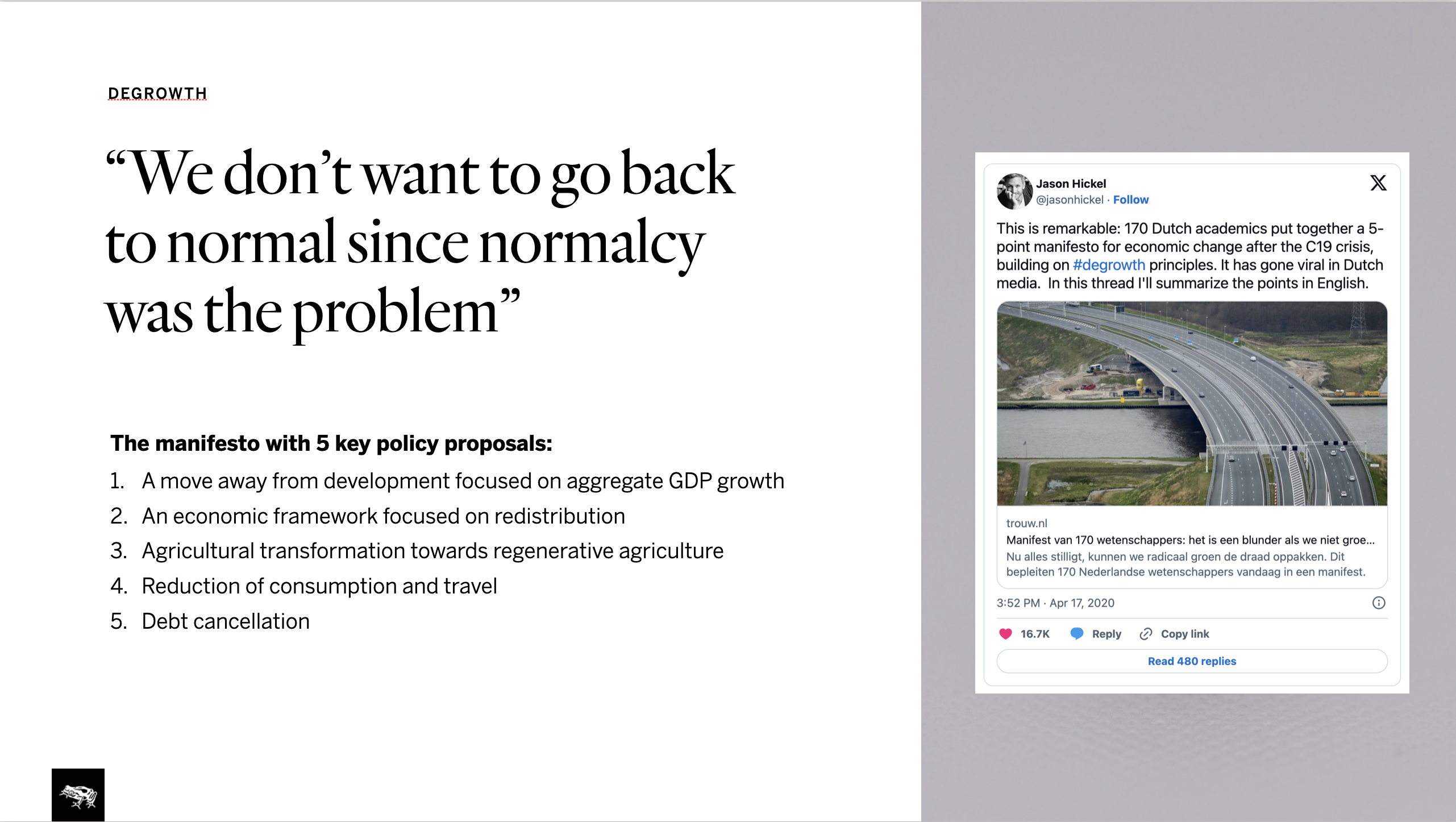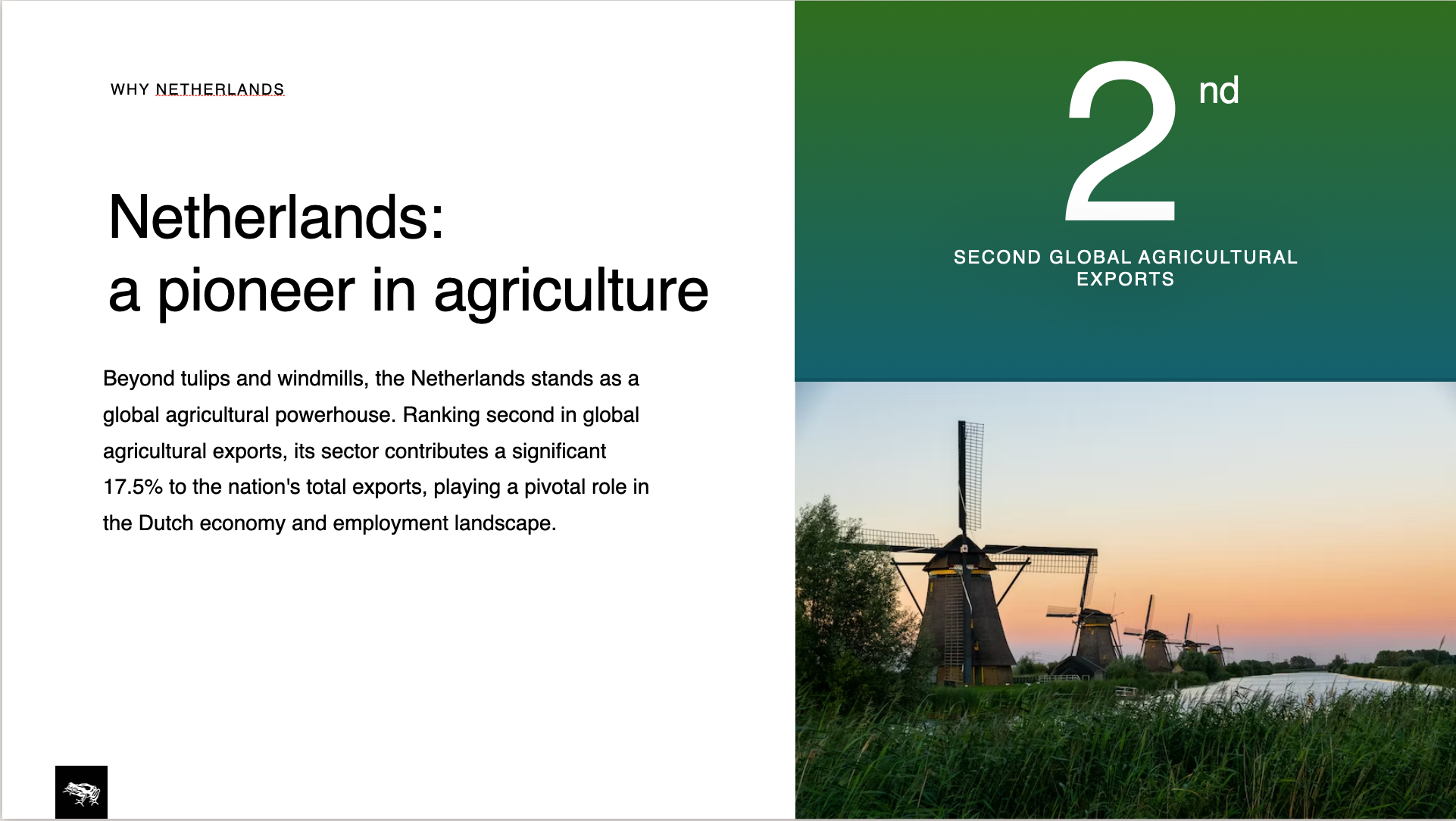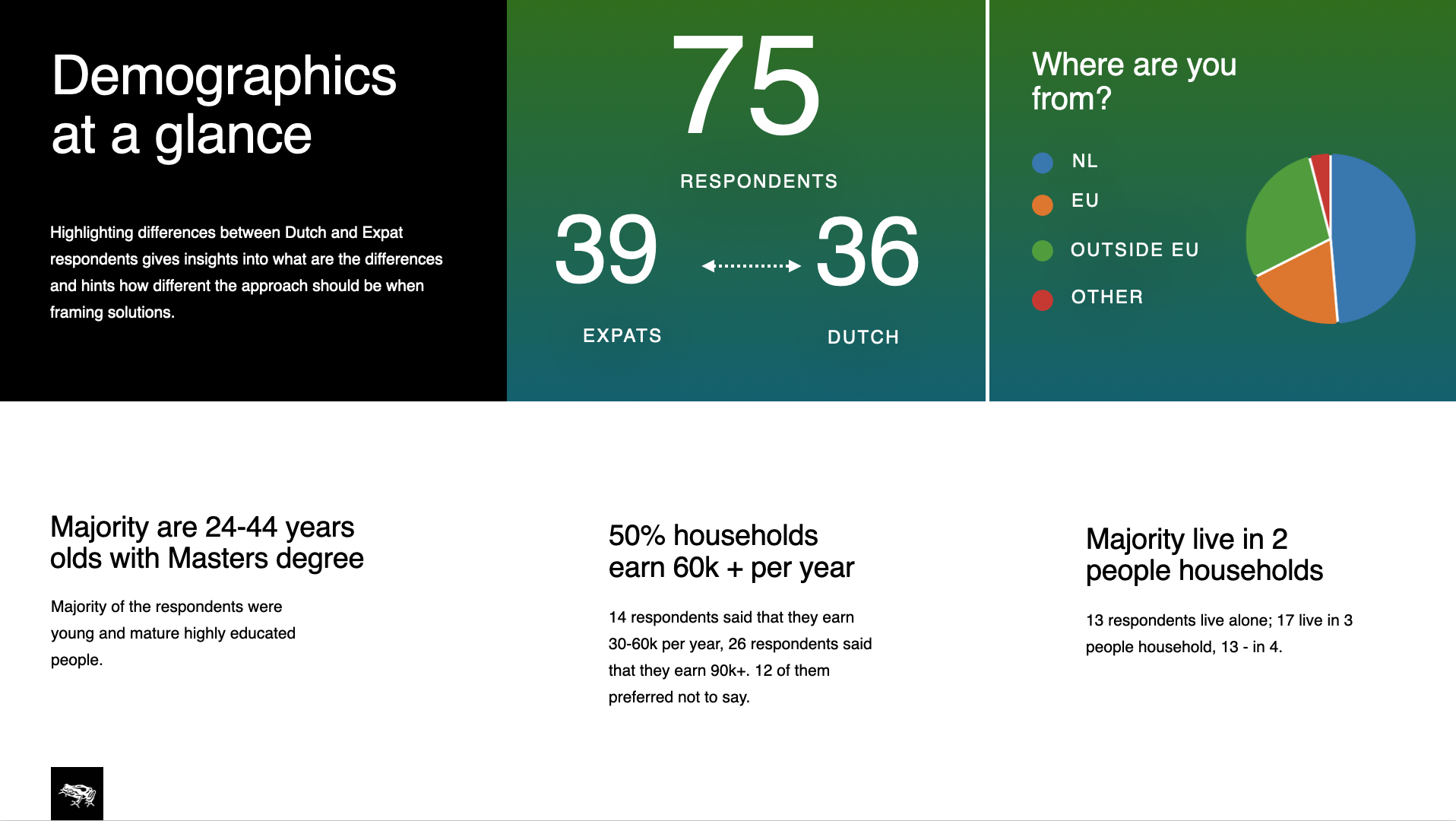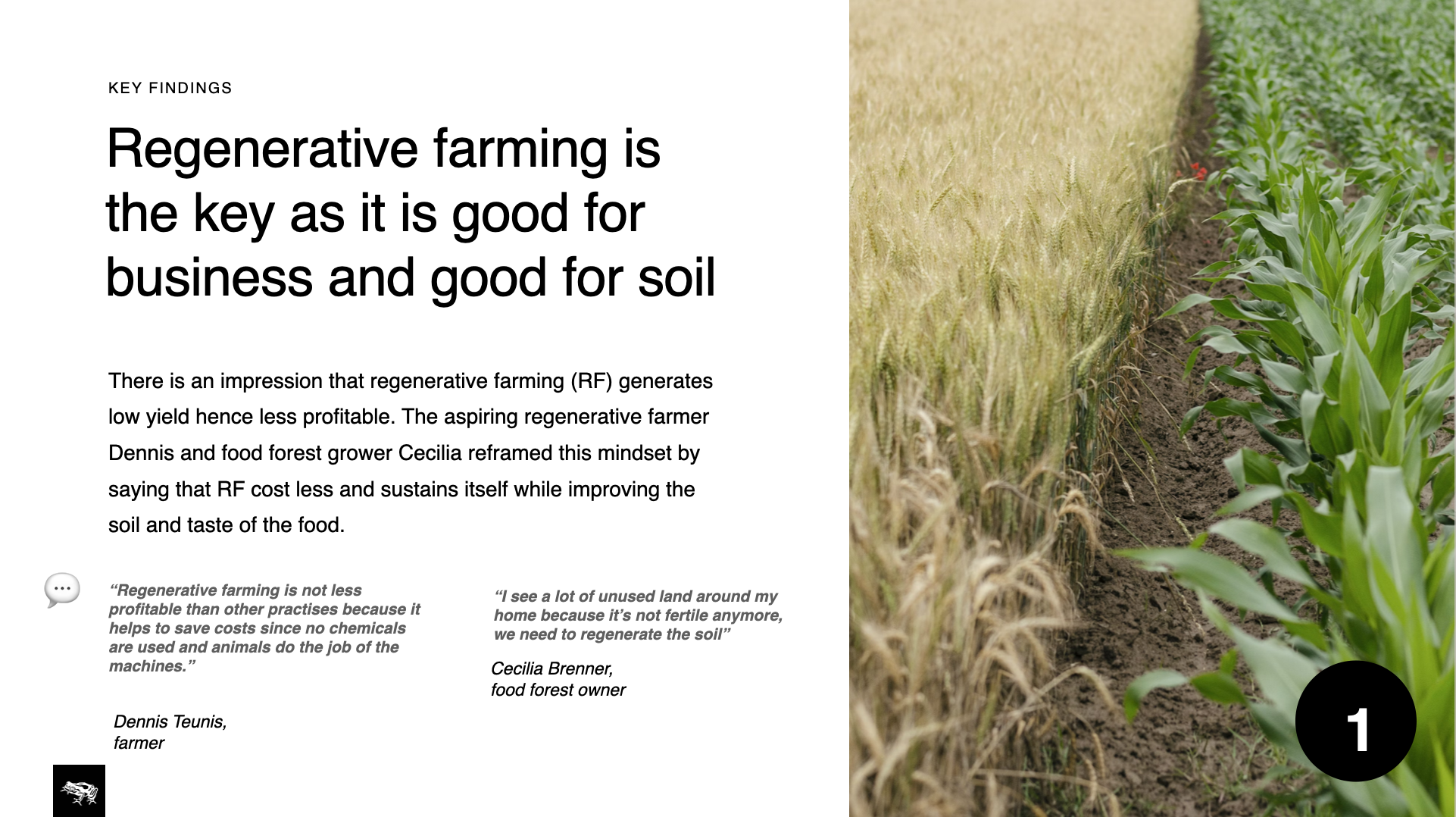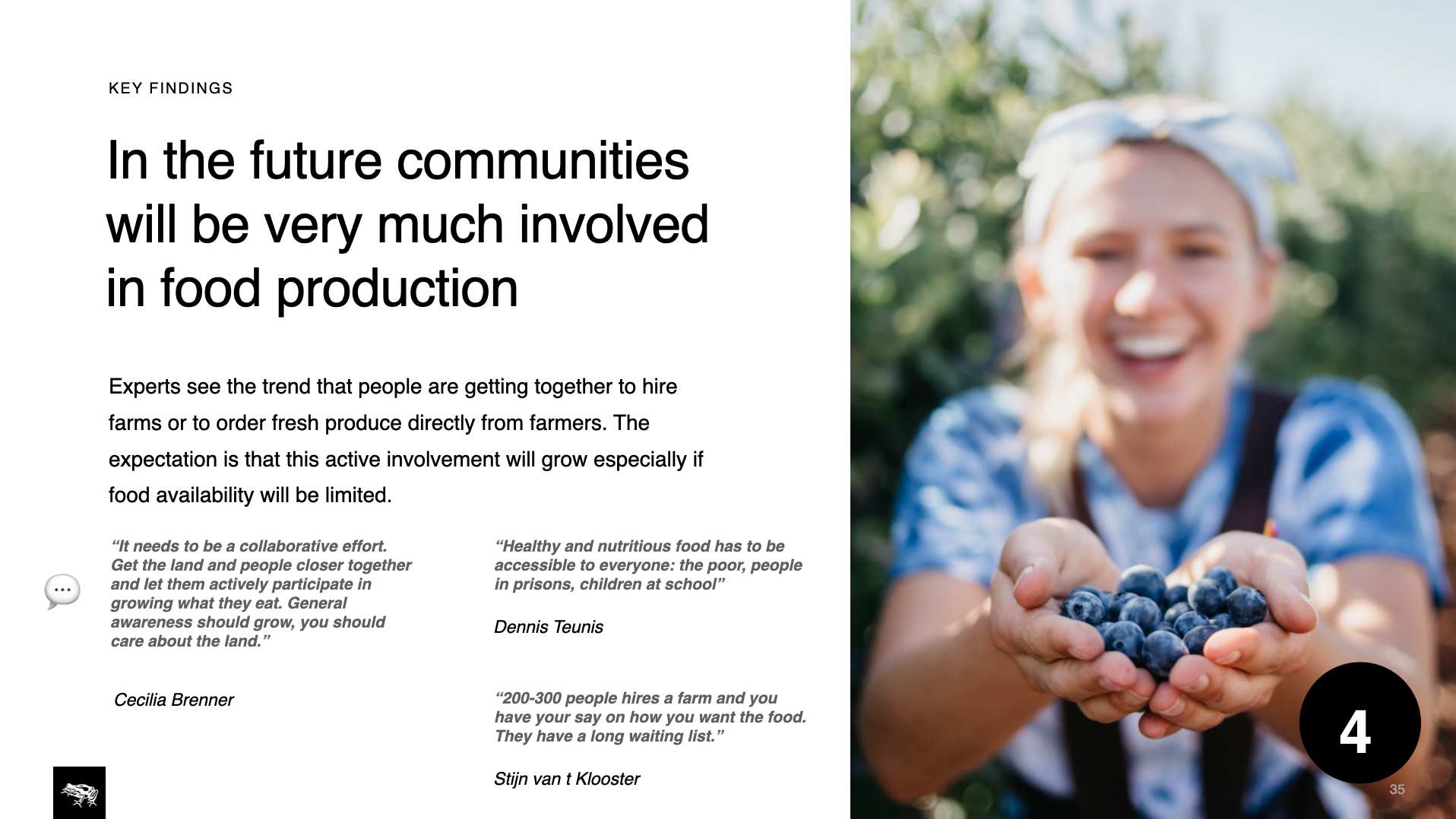Researched the future perceptions of grocery shopping and awareness of regenerative farming
Client
frog business development project
Year
Aug 2023 - Jan 2024
My role
Led quantitative and qualitative research, derived insights and presented recommendations
Impact
Initially regenerative farming was written off as not interesting to consumers and not a profitable option for farms. This project gave grounds to explore regenerative farming as a potential business opportunity for Capgemini agriculture clients in the Netherlands.
Challenge
To understand current fresh produce shopping habits and future expectations of customers living in the Netherlands (NL)
Outcome
Research results showed that customers are considering two factors when buying food: price and nutrition, while businesses are looking for ways how to offer healthy produce.
Third policy proposal - agricultural transformation
Dutch scientist argued that traditional way of farming is not good for nature right now and in the future. Transformation towards regenerative agriculture based on biodiversity conservation, sustainable and mostly local and vegetarian food production would prevent or reduce future crisis.
170 dutch scientists signed 5 key policy proposals for post-pandemic world
Why is it relevant in the NL?
The Netherlands is the second largest food exporter in the World. However farmers are facing more and more challenges because of changing climate and degrading soil health.
Regenerative agriculture focuses on improving and restoring the health of the soil. In simple terms, it's a way of farming that aims to leave the land more fertile and resilient than before, using methods such as cover cropping, crop rotation, and minimal soil disturbance.
Healthy produce and its climate impact are the main deciding factors when educated and wealthy people are buying food
I wanted to test the assumption that people pay attention to food nutritional value, BIO / organic labels or place of production when buying produce. When consumers will care about food nutrional value, farms and companies within supply chain will follow suit.
It was interesting to know how people make decisions when buying produce, how much they know about farming practises and how they imagine the future of grocery shopping.
The assumption was that if people who are highly educated and have fiancial means do not pay attention to food nutritional value, then less educated and poorer people don't too.
The main findings of consumer survey
1. Consumer are trying to balance between price and healthy food
Price, convenience and healthyness (nutrional value and BIO label) of the food are the top 3 deciding factors when buying produce.
Cultural difference impact consumers' behaviour and expectations. Price is by far the most important factor for both expats and dutch groups, however expats are less affected by discounts and more affected by food nutritional value.
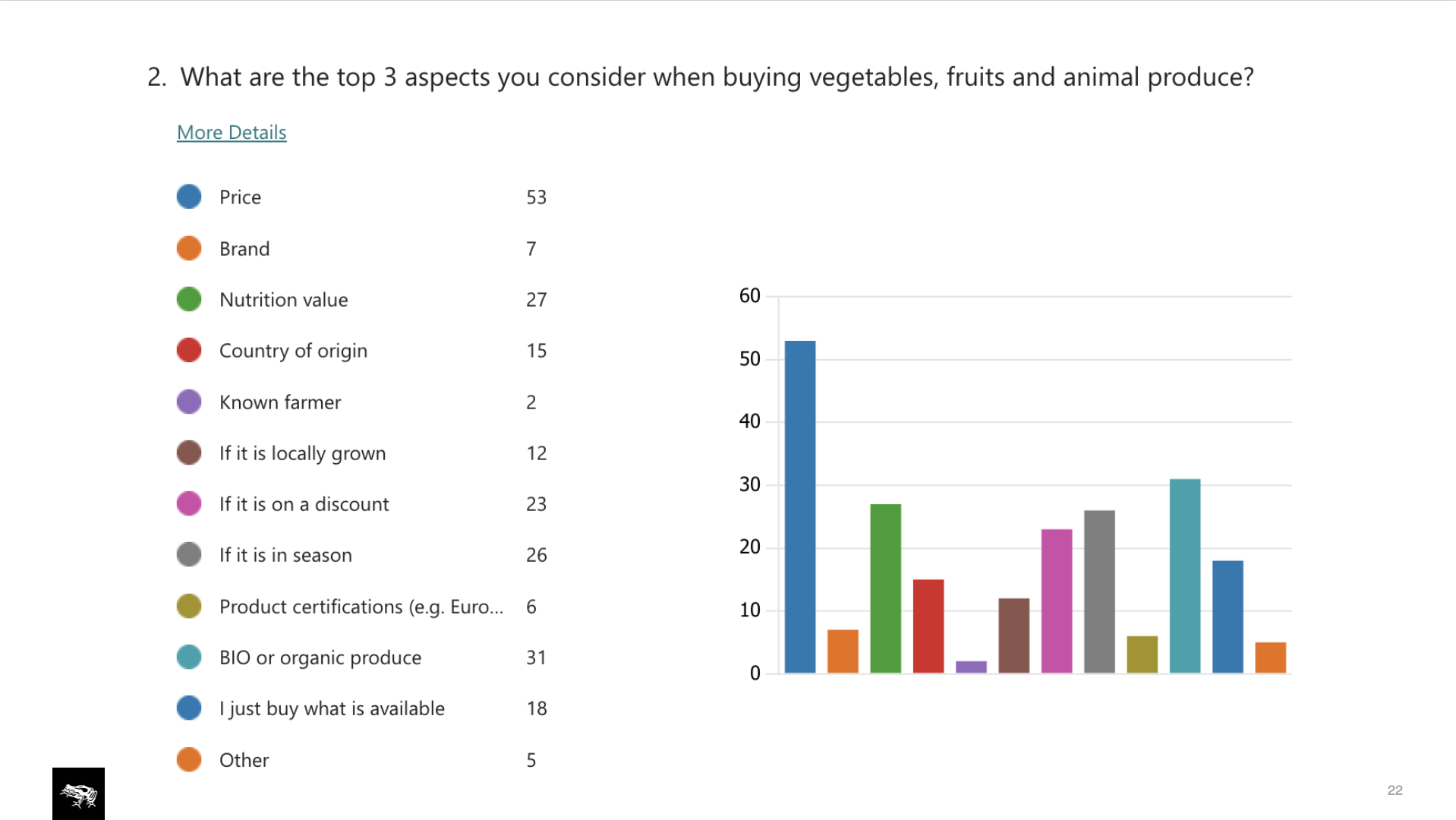
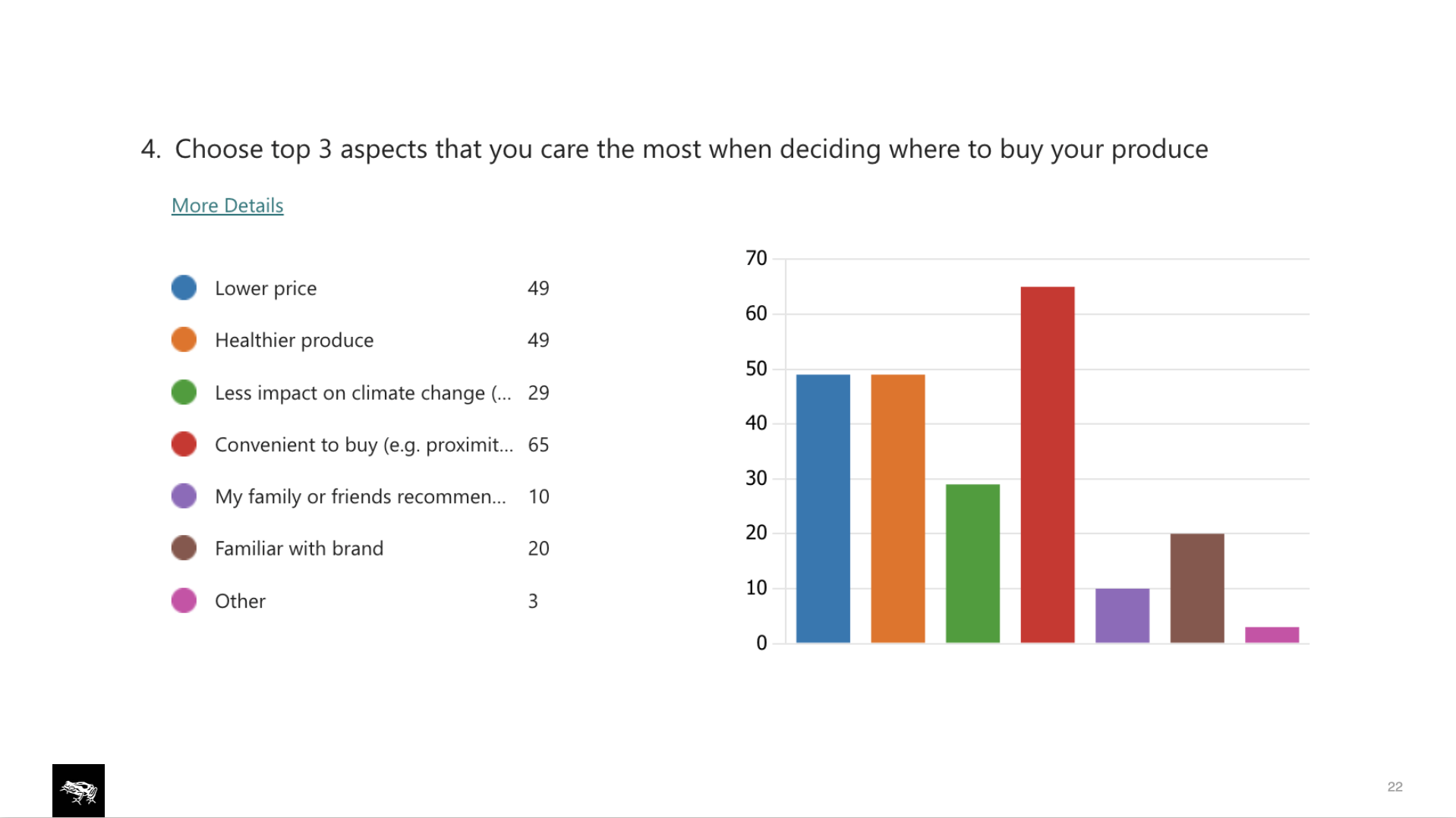
Results of expats and dutch people combined
2. Lack of awareness about farming practises
People are aware that agriculture has a very high impact on climate change, however the numbers do not show as high concern.
Additionally, education about different farming practises and its impact on climate and food quality is needed. Majority of the respondents are not sure which farming practise is better for soil and the planet. Duthies were the ones who knew about regenerative farming.
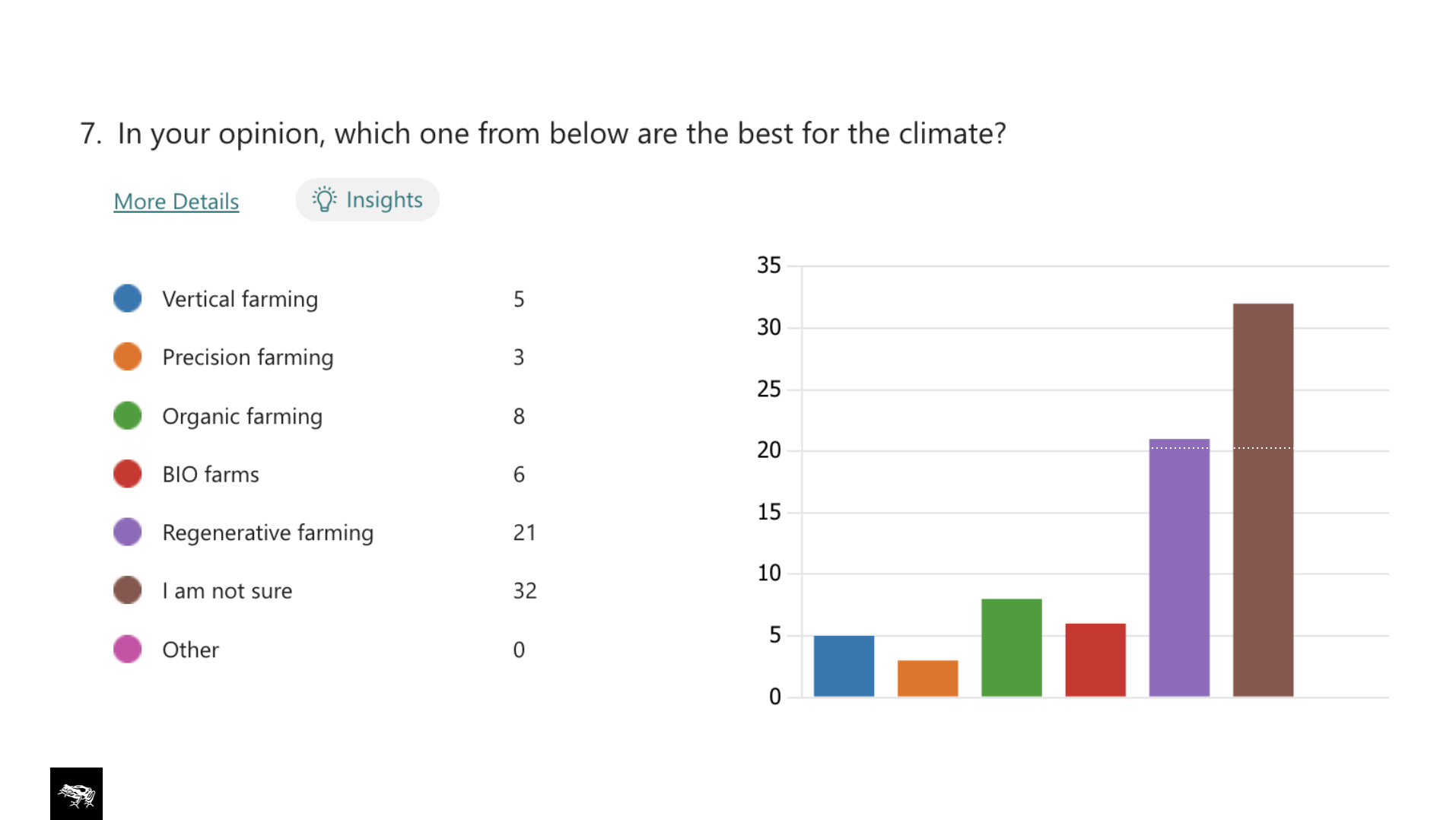
Results of expats and dutch people combined
3. Consumers imagine grim future with unaffordable and tasteless food
For the future dutchies would wish a more convenient way of shopping, whereas expats wish abudance of fresh produce available and more access to produce of local farmers.
People expect to grow food themselves because it might be unaffordable, tastelessm, genetically modified and simply not enough.
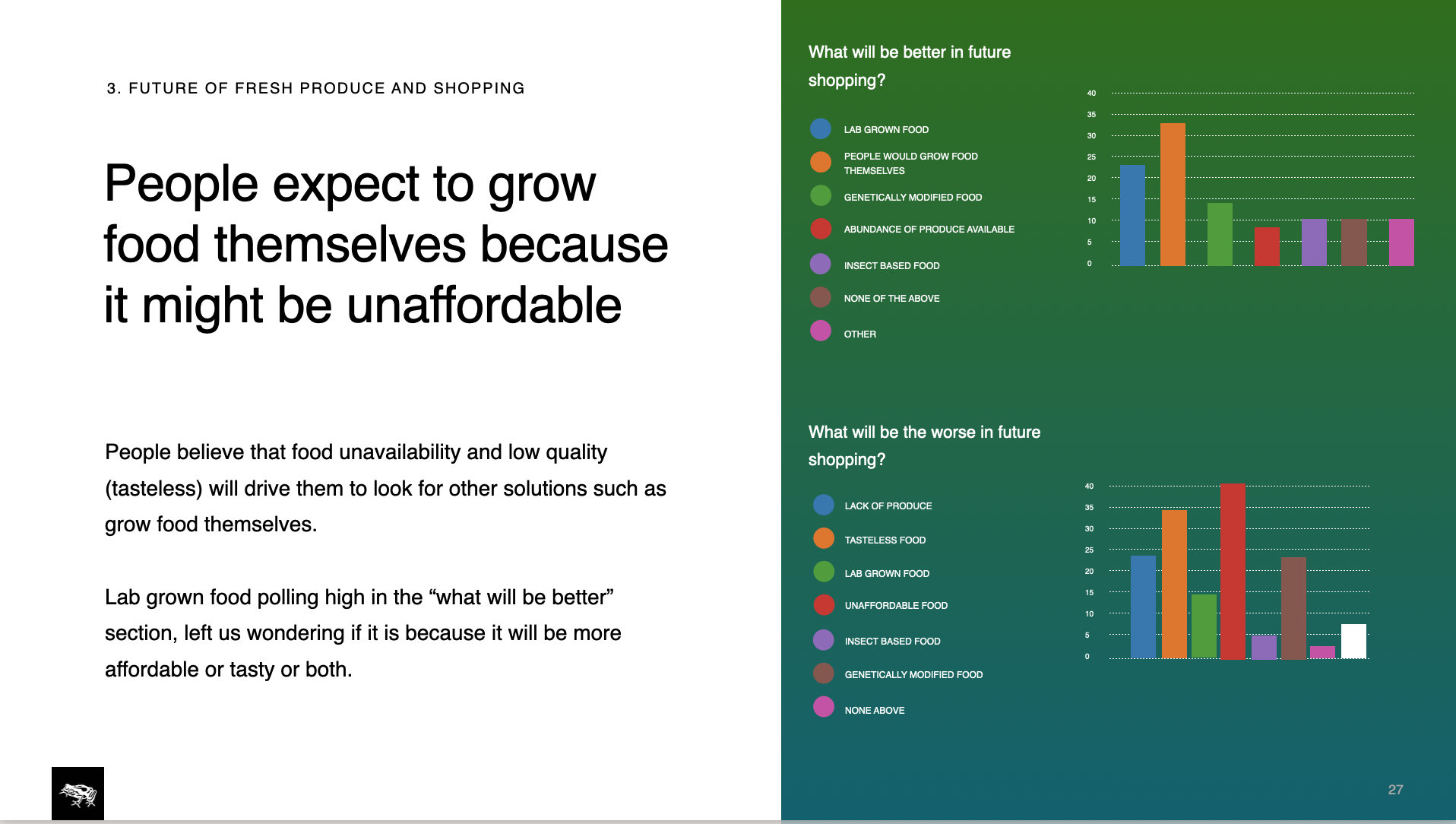
Results of expats and dutch people combined
People expect that goverment will regulate farmers more in order to have more sustaibale farming practises and have less export to be able to eat local food. Additionally, innovation is expected to tackle future farming challenges.
Insights from interviews with SMEs
4 SMEs to give perspective from consumer, supply chain and farmer angles
My network helped to reach a professional who grows her own food forest in her backyard and was happy to share her journey and learnings. Also a professional who is turning into regenerative farmer.
Other 2 contacts (academic researcher and business representative) shared their insights around food supply chain realities.
Regenerative farming is the future
Farming practise that recreates biodiversity and improves produce nutrional value is something that would restore people and planet's health.
People who are already farming in a regenerative way see positive results in abundance of produce and less expenses comparing to traditional way of farming.
People are slowly getting interested in what they eat and take action
Some respondents indicated that they already take extra steps to get produce from farmers or they would wish a better access to farmers markets.
SMEs shared several examples how people collectively grow food themselves, buy directly from farms or even hire farms. Supply chain representatives indicate where the food comes from as per request from consumers.
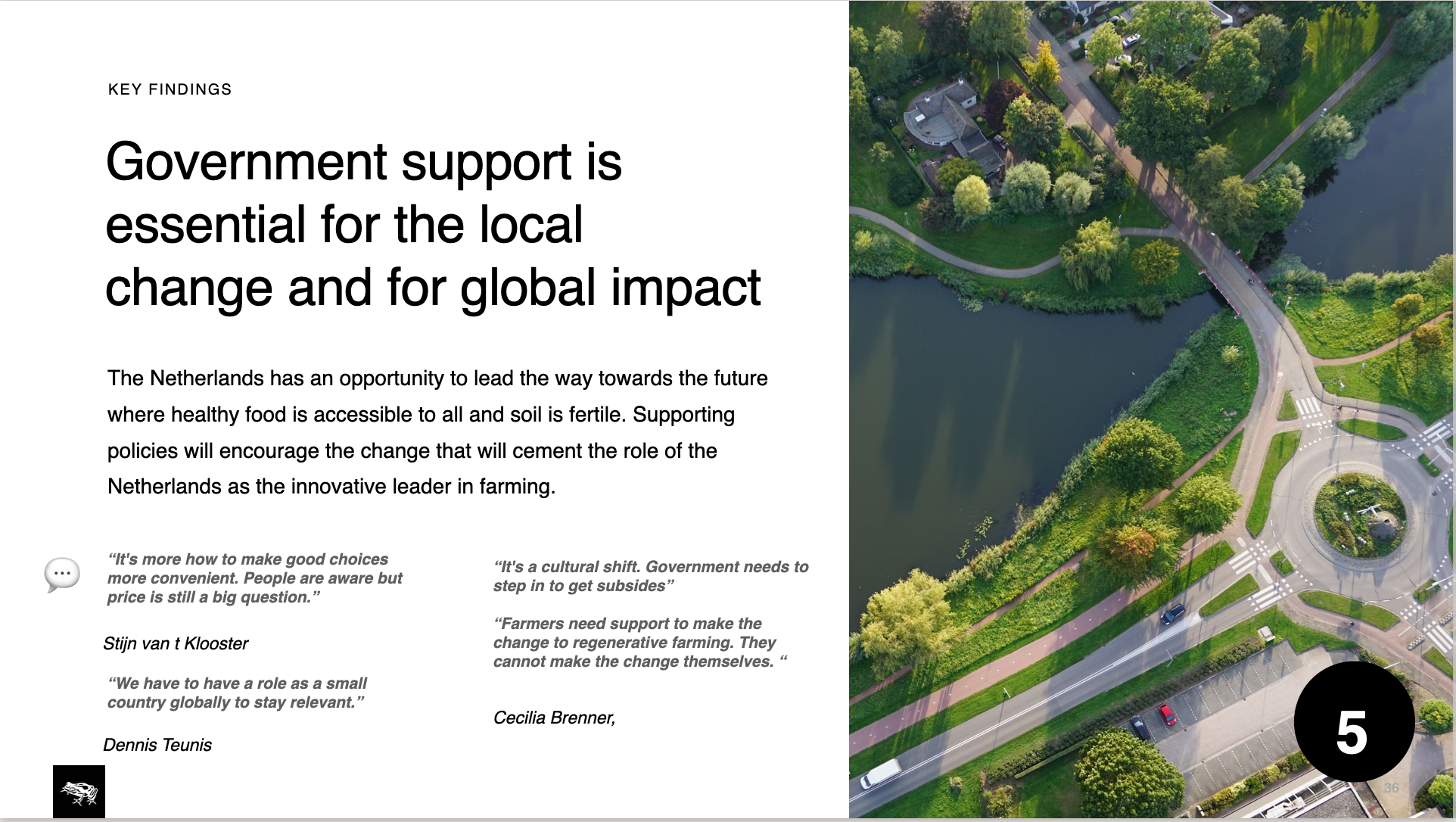
Pre-filled the happy path of the blueprint, then had the client fill the rest!
Systemic change is required to make a shift
Healthy food should be accessible to everyone, not only to the wealthy. Therefore all stakeholders - government, supply chain, farmers and consumers - need to be enaged in the shift towards regenerative farming. Consumers need to be educated, farmers incentivised to produce nutrional (not only calory packed) food.
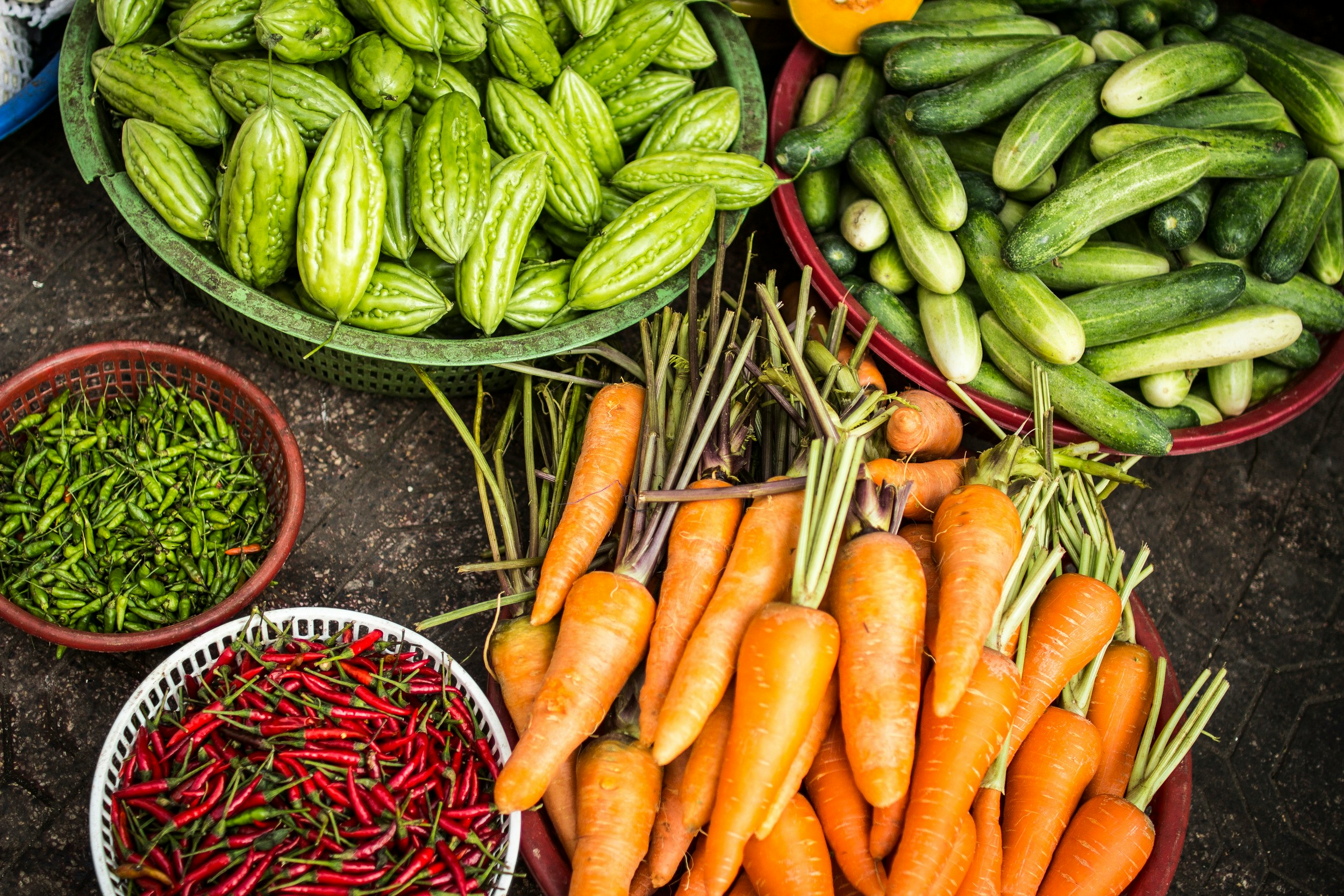
Nutritious produce
Next steps
How might we make regenerative farming attractive to farmers and everyone?
Consumer growing interest and trends that SMEs shared give ground to explore regenerative farming proposition. Before advising Capgemini clients to switch from traditional or organic to regenerative farming we need to understand current challenges that farmers are facing and what are their concerns related to the switch.
The next project should aim to answer the following questions:
- What is the financial potential of regenerative farming?
- Why and how the government should support farmers who want to switch?
- How to influence behavioural change of system stakeholders?
- What are the current farming realities and how it would change during and after the switch?
